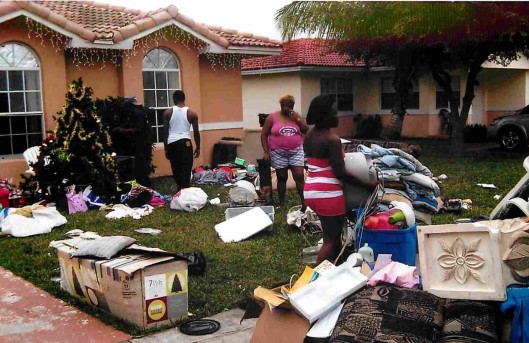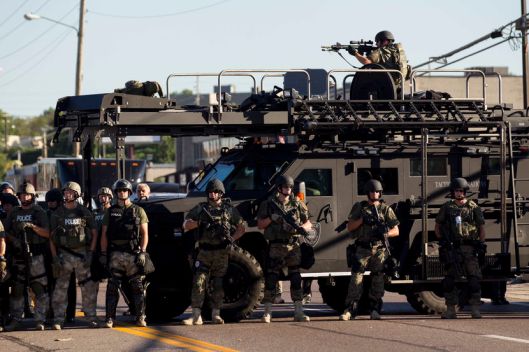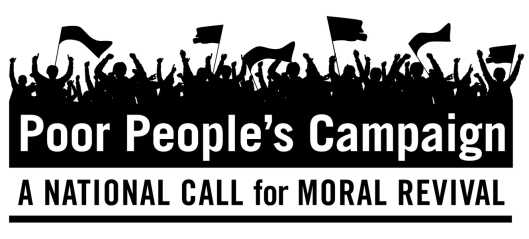Tags
A National Call for Moral Revival 2018, American Systemic Racism, Ecological Devastation in America, Institute for Policy Studies (USA), Poor People’s Campaign 2018, Poverty in America, The Souls of Poor Folk, The War Economy and Militarism in America
Poor People’s Campaign: A National Call for Moral Revival
Photo Credit: Poor People’s Campaign
I’m finding it hard to stay abreast of all the upheaval triggered by our Twitter-in-Chief. His tweets and threats boggle my mind, create instability across our nation, and embolden our rivals and enemies overseas.
While our bombs turn the Middle East into rubble, people at the bottom rungs in America face their own hell. This month, the Institute for Policy Studies has published its empirical study, The Souls of Poor Folk, highlighting the complex issues that entangle our lives: systemic racism, persistent poverty, the war economy and militarism, and ecological devastation. Here are some of their key findings.
Systemic Racism:

Mother and daughter at prayer vigil following ICE raid of a meatpacking plant in Morristown, Tennessee on April 7, 2018
Photo Credit: The Intercept
- Federal and state legislation restrains poor minority populations from participating in democratic processes.
- “Tough on Crime” policies have detonated the numbers of incarcerated poor Blacks.
- Anti-immigrant measures impact not only detainees and deportees but also their family members and communities.
Poverty:

Florida grandmother evicted from rental home with daughter and six grandchildren
Photo Credit: Huffington Post
- Structural changes in employment foster a low-wage economy.
- A tiny elite class pockets massive economic gains, leaving no trickle for workers.
- Nearly 41 million Americans live below the federal poverty line. In absolute numbers, these include 17.3 million Whites, 11.1 million Latinos, and 9.2 million Blacks.
- Nearly 140 million people (43.5 percent of all Americans) are either poor or low-income.
- Over the past thirty years in nearly every urban area, incomes have not kept pace with increases in rents, higher education, and health care costs.
- Since the 1970s, cuts in federal housing assistance and affordable, subsidized housing have contributed to rising structural homelessness. (Check out Princeton University’s nationwide database of evictions.)
- Partly driven by the growth of high-cost, high-risk, for-profit colleges, student debt levels have exploded to $1.34 trillion, crippling about 44 million Americans.
- Even under the Affordable Care Act, about 31 million people remain uninsured.
- America has become a debtor nation. Excluding the value of the family car, 19 percent (60 million) of all U.S. households have zero wealth or their debts exceeded the value of their assets.
The War Economy and Militarism:

Law enforcement officers with sniper during demonstration – Ferguson, Missouri
Photo Credit: MSNBC
- Since Vietnam, the United States has waged ongoing wars against diffuse enemies, siphoning massive resources away from social needs. At $668 billion, the current annual military budget dwarfs the $190 billion allocated for education, jobs, housing, other basic services, and infrastructure.
- In 2016, the CEOs of the top five military contractors earned an average $19.2 million – more than ninety times the $214,000 earned by a U.S. military general with twenty years’ experience.
- Perpetual war has taken a toll on U.S. troops and personnel.
- Militarism abroad has gone hand in hand with militarization of U.S. borders and poor communities across America.
Ecological Devastation:

Family awaiting aid after Hurricane Maria – Puerto Rico
Photo Credit: Earth Justice
- The U.S. and global climate and ecological crises multiply the other injustices.
- Rising climate change threats, such as Hurricane Maria on Puerto Rico in 2017, are particularly devastating for the poor.
- Across the United States, poor people face crises of water affordability, water pollution, and water scarcity in areas exacerbated by climate change.
- While poor urban populations deal with rising water bills, the rural poor often lack access to piped water and sewage systems.
- Pipelines transporting oil and gas continue to advance, even though they pose serious threats to the climate, water quality, and public health through leakage and catastrophic spills.
I recommend that you set aside time to read The Souls of Poor Folk. See the numbers. Learn about the targeted missiles of disempowerment. Hear the testimonies of people facing daily bombardment. Their tribulation and pain are no less than those of the victims of the latest abhorrent chemical weapons attack in Syria that warranted a U.S. military response.
Join the Poor People’s Campaign, May 13th to June 23rd, that will assemble at the National Mall in Washington D.C. and in other state capitols across our nation. Add your voice to the demand that “our country see the poor in our streets, confront the damage to our natural environment, and ponder the ailments of a nation that year after year spends more money on endless war than on human need.”
It’s up to those of us who are still standing to help the fallen and wounded within our ranks. It’s time to make a national call for moral revival.


” ‘Sail on, oh ship of state, Sail on, oh union strong and great; ” but watch out for those rocks. Rocks that you yourselves are creating by your stupidity and greed.
LikeLiked by 1 person
Indeed, John. Greed damages the brain’s capacity of rational thinking.
LikeLike
A powerful inditement
LikeLiked by 1 person
You are probably preaching to the converted here Rosaliene – but my goodness those figures are so very shocking, maybe someone will be woken up by them! I wish you all well for the rally and the call for a moral revival – Brava and write this big: “we demand our country see the poor in our streets, confront the damage to our natural environment, and ponder the ailments of a nation that year after year spends more money on endless war than on human need.” Powerful!!
LikeLiked by 1 person
Yes, I’m hoping that the study will wake up more people.
That powerful quote was taken from the website of the Poor People’s Campaign, a nationwide movement.
LikeLiked by 1 person
Thank you for bringing this report and call to action to my attention.
LikeLiked by 1 person
Reblogged this on Guyanese Online.
LikeLiked by 1 person
Thanks for spreading the news, Cyril 🙂
LikeLike
For my part, I’m doing a bit to help register unregistered voters. I imagine many of your readers are doing even more, Rosaliene.
LikeLiked by 1 person
Dr. Stein, thanks for reminding me that all is not yet lost.
LikeLiked by 1 person
Pingback: The Souls of Poor Folk: A National Call for Moral Revival – Rosaliene Bacchus
Thanks for sharing, GuyFrog 🙂
LikeLike
This is the very sad state of America, alright. What has become of us?
LikeLiked by 1 person
I was shocked by the numbers, Robert. Whites are also feeling the pain. While they pocket all the gains of human and non-human Nature, the tiny power-elite keep us divided by blaming blacks, Muslims, undocumented immigrants, and others for all that’s bad with America that has lost its greatness.
LikeLiked by 1 person
You just cited the main reason – among others – why Trump won the presidency.
LikeLiked by 1 person
wonderfully compassionate
outline for a movement, Rosaliene!
i’ll put on my shoes
& get out with the like-hearted 🙂
LikeLiked by 1 person
the world is aware & watching,
supporting efforts of justice
in these times of injustice:
https://www.theguardian.com/commentisfree/2018/apr/15/poor-peoples-campaign-systemic-poverty-a-sin
LikeLiked by 1 person
David, thanks for sharing the article by Reverend Barber and Dr. Theoharis. Indeed, the world is watching.
LikeLike
Thanks, David. I’m planning on doing the same in my area.
LikeLike
Thank you so much for sharing this crucial and powerful message, Rosaliene.
LikeLiked by 1 person
Excellent article, Rosaliene. Very compelling reading. It’s like the US government is waging a deliberate war against the poor. I will definitely have a look at The Souls of Poor Folk.
LikeLiked by 1 person
Thanks, Dr. Bramhall.
LikeLike
Rosaliene one of the things we love about you is your the proponent for sanity in an ever frustrating world of insanity.
LikeLiked by 1 person
Thanks Mike and Lori. I keep sane with nightly reflections of the Tao Te Ching.
“See the world as your self,” Lao-tzu taught his followers. “Have faith in the way things are. Love the world as your self; then you can care for all things.”
It’s a tall order, but what have I to lose in trying?
LikeLiked by 1 person
I do the same.
LikeLiked by 1 person
I’m actually poor and can’t afford the trip up there, but I’ll definitely do what I can to support your movement in any way! This is awesome! I’m definitely going to read the article that was shared and re-read this post more. I’m all about supporting minorities!! Thank you so much for your kind heart in sharing this information and helping vulnerable populations!
LikeLiked by 1 person
Peace Penguin, I am also cash-strapped – I have two wonderful sons who take care of my needs and make it possible for me to write – and hope to attend an event in Los Angeles. In supporting minorities, you are already doing your part in community building. Opportunities abound for each one of us to help those around us who are in need.
Just one clarification: I am not a member of the Poor People’s Campaign; I’m just doing my small part in promoting the movement.
LikeLiked by 1 person
Thanks for clarifying. That’s awesome that you help to support this. 🙂 I”m not a member either, and I really cannot do protests, but I can try to support in some way. 🙂
LikeLiked by 1 person
Well, America continual practice of warring, against this, that , or those, and the many others, also include a war against the poor, a war best exemplified by the long ago forgotten incident, Oliver North, and the Iran contra incident.
The charges of CIA involvement in Contra cocaine trafficking were revived in 1996, when a newspaper series by reporter Gary Webb in the San Jose Mercury News claimed that the trafficking had played an important role in the creation of the crack cocaine drug problem in the United States. Webb’s series led to three federal investigations, none of which found evidence of any conspiracy by the CIA or its employees to bring drugs into the United States.
But despite this lack of ‘evidence,’ it’s well known they purposely targeted the poor neighborhoods of our cities, like Compton, and Watts in Los Angeles, that wrecked so many lives.
Imagine!
Such war on our own country citizens, just for the unpardonable sin of being poor, and mainly people of color!
So what can we expect on the current state of affairs, be surprised now, by the statistics, after the fascist ideologies of more than half a century, by our leaders, and the free reign of the plutocrats?
LikeLiked by 1 person
I certainly agree with you on that comment. Though it seems and sounds like a conspiracy theory, the intent to destroy poor neighbourhoods and set a process whereby the poor would turn on each other was certainly evident. “There are none so blind as those who will not see.” Now it remains to be seen if these planned protests will avail anything at all. Based on long time personal experience, I see mass protests are just a way to blow steam. Sometimes, if rarely, a bit of social conscience is awakened, for a short time, but on the long haul, it’s business as usual, e.g., the “Hippie” commune movement; the MLK Jr. campaigns and Black Power. On the surface, sure, some things change, but those changes aren’t fundamental, and that’s the problem. When people, as responsible individuals, decide it’s time to take over FROM the system, then we shall see irreversible change. The point isn’t to protest against an oppressive structure but to remove its power. Two very violent and loud “protest” revolutions that accomplished nothing: the French and Russian revolutions.
LikeLiked by 2 people
Yes, Burning Heart, we live in a crazy world where our actions, whether deliberate or not, affect the lives of millions.
I recently watched the comedic crime movie AMERICAN MADE (2017) starring Tom Cruise based on the biography of Barry Seal, a TWA pilot recruited by the CIA. According to the biography, Seal played an important role in the Contra cocaine trafficking deal.
LikeLike
Reblogged this on ashiftinconsciousness and commented:
We know what’s going on around us these days. The parasitic predators don’t seem to care that we know anymore. They boldly go where no one has gone before. The cards are on the table. Read ’em and weep. Then, get up and do something about it…
LikeLiked by 1 person
Thanks for the re-blog, Shift. The “parasitic predators” have become soulless.
LikeLiked by 1 person
Thank you for sharing these [sobering] facts and statistics.
LikeLiked by 1 person
They are indeed, Leslie. Thanks for dropping by.
LikeLiked by 1 person
Your photographs are exceptionally powerful.
LikeLiked by 1 person
Thanks for dropping by, Cathi 🙂
LikeLiked by 1 person
Wow. Thank you for writing and caring about this and these topics. I’m so glad I found your blog and look forward to seeing it in my reader! 😀
LikeLiked by 1 person
Thanks for dropping by, JST. I look forward to staying connected on the blogosphere.
LikeLiked by 1 person